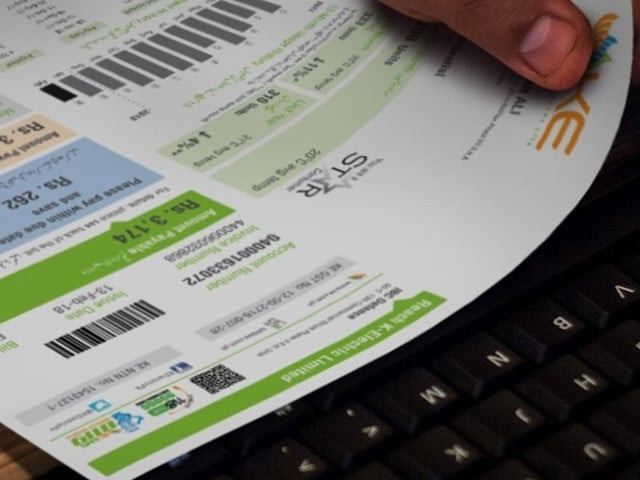Karachi braces for power price hike by up to Rs10 per unit
NEPRA approves K-Electric’s request for fuel charges adjustments

The consumers of Karachi are set to face an increase in electricity rates by up to Rs10 per unit, to be paid in four installments, due to the provisional fuel cost adjustment for nine months of the ongoing financial year 2024.
The power regulator—the National Electric Power Regulatory Authority (NEPRA)—has made this decision while hearing a request from K-Electric for provisional monthly Fuel Charges Adjustments (FCA) for the period from July 2023 to March 2024.
The authority has decided to stagger the recovery of these FCAs in consumer bills over four months, from June 2024 to September 2024.
The decision specifies the FCA rates, which will be applied progressively to customer bills over the next four months. Consumers will see an increase of Rs2.6761/kWh for October 2023 and February 2024 in the June 2024 bills.
They will face an increase of Rs3.1057 per unit for July 2023 and September 2023 in the July 2024 bills. Consumers will pay Rs3.2242 per unit for August 2023, November 2023, and December 2023 in the August 2024 bills. Additionally, they will face a hike of Rs0.9980/kWh for January 2024 and March 2024 in the September 2024 bills.
These adjustments are part of the regular process to align the cost of electricity with actual fuel expenses, ensuring transparency and fairness in energy billing. Customers also receive a benefit in their bills when global fuel prices decrease.
Also read: PPP blasts govt over Karachi blackouts
The mechanism governing the calculations for the FCA is outlined in the Multi-Year Tariff (MYT) for power distribution companies (DISCOs).
Since K-Electric’s MYT petition for the control period FY24 to FY30 is currently under deliberation, it requested NEPRA for directions on passing the FCA costs for the period from July 2023 to March 2024 to customers in their bills.
NEPRA conducted a hearing on the matter on May 9, 2024, which included detailed discussions on the variations in fuel costs incurred by K-Electric during the specified period. These adjustments account for global changes in fuel prices and K-Electric’s energy mix.
During the first nine months of FY24, customers of other DISCOs in the country have already undergone a similar process of paying FCA on a monthly basis, with an average rate of approximately PKR 2.89 per unit. In comparison, K-Electric’s provisional FCA during the same period is approximately Rs1.26 per unit on average.
The increase in the power tariff will apply to all consumer categories except Electric Vehicle Charging Stations (EVCS) and lifeline consumers. The increase will be shown separately in the consumers' bills based on units billed to the consumers, in the respective month to which the adjustment pertains.
The power regulator in its decision said K-Electric shall reflect the fuel charges adjustment for each month in the billing month as per the schedule.
“While effecting the FCA, K-Electric shall keep in mind and strictly comply with the orders of the courts notwithstanding this order. Similarly, in case of negative FCAs, the same shall be applicable to all the consumer categories except lifeline consumers, domestic consumers consuming up to 300 units, EV Charging Stations, and Agriculture Consumers of K-Electric,” it noted.
NEPRA also clarified that negative adjustment on account of monthly FCA is also applicable to domestic consumers with Time of Use (ToU) meters, irrespective of their consumption level.
It shall be shown separately in the consumers' bills based on units billed to the consumers in the respective month to which the adjustment pertains. “K-Electric shall reflect the fuel charges adjustment for each month in the billing month as per the schedule,” NEPRA added.



















COMMENTS
Comments are moderated and generally will be posted if they are on-topic and not abusive.
For more information, please see our Comments FAQ